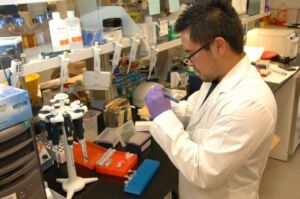News
Danish hospitals lacking specialist doctors
This article is more than 10 years old.
Denmark is lacking at least 500 specialist doctors, with the peripheral areas of the country suffering the most

An absence of medical professionals means longer waiting times and impaired medical quality, say experts (photo: Kaligula)
A recent poll conducted by DR reveals that Denmark is short of at least 500 skilled medical specialists, with the peripheral areas of the country suffering the most.
“It is a serious problem,” Medical Association chairman Andreas Rudkjøbing told DR.
“It means, among other things, that we cannot possibly deliver treatments at the level we want. It means longer waiting times and impaired medical quality. It may also mean that patients need to travel further to receive the treatment they require.”
Outskirts in medical peril
All parts of the country lack specialists. However the study reveals that it is the small hospitals in the peripheral areas of the country that struggle the most with recruiting skilled medical professionals.
“The combination of being a small hospital and being located on the outskirts of Denmark makes it difficult to attract doctors,” Jes Søgaard, a professor of health economics at the University of Aarhus, told DR.
Søgaard explained that doctors tend to steer clear of the smaller hospitals as it can be harder to develop professionally there.
“Doctors are also thinking of their spouses and families, who may have difficulty finding a job in the area. It certainly makes it seem less attractive,” he added.










































